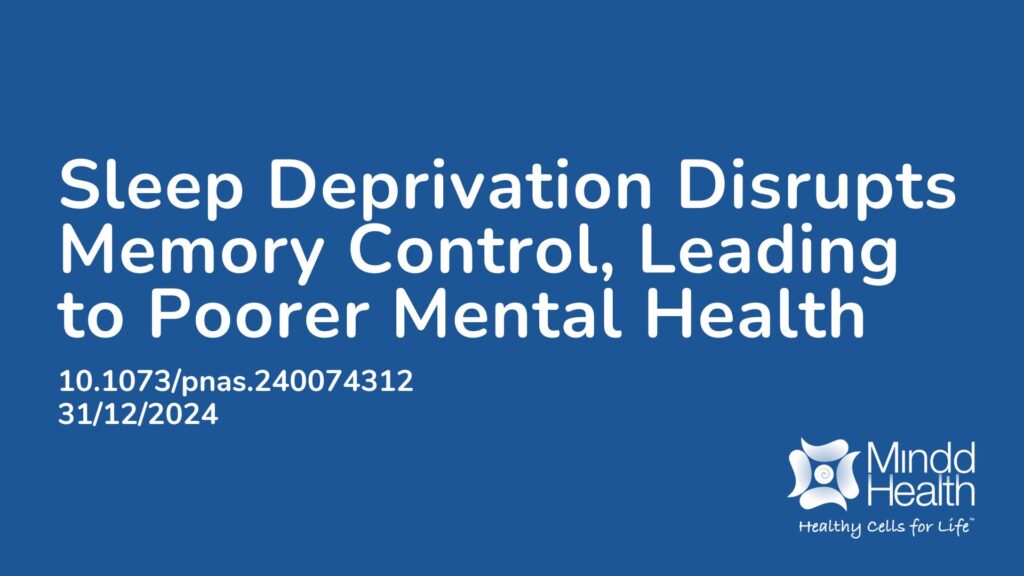Summary:
Unpleasant memories can sometimes pop into our minds, often triggered by reminders. For most people, these moments are brief and manageable. However, for individuals with mental health conditions like depression, anxiety, or PTSD, these intrusive memories can be frequent, vivid, and distressing. Understanding what causes these memories to surface is essential for improving mental health and reducing their global impact. One way people manage intrusive memories is by intentionally suppressing them, pushing them out of their awareness. This process weakens the memory, making it less likely to intrude again. Previous research found that sleep plays a key role in this ability. People who are well-rested are better at suppressing unwanted memories, while those who are sleep-deprived struggle to do so, allowing these memories to remain intrusive over time. This research article found that sleep deprivation disrupts the brain’s ability to block memory retrieval, a process controlled by the prefrontal cortex. Restoring this ability depends on getting enough REM sleep, which supports the brain’s inhibitory functions. Without adequate sleep, people struggle to suppress unwanted memories, leading to more frequent intrusions. The findings highlighted how sleep loss interferes with the brain’s control over memory, emphasizing the importance of sleep in managing mental health.
Abstract:
Sleep disturbances are associated with intrusive memories, but the neurocognitive mechanisms underpinning this relationship are poorly understood. Here, we show that sleep deprivation disrupts prefrontal inhibition of memory retrieval, and that the overnight restoration of this inhibitory mechanism is associated with time spent in rapid eye movement (REM) sleep. The functional impairments arising from sleep deprivation are linked to a behavioral deficit in the ability to downregulate unwanted memories, and coincide with a deterioration of deliberate patterns of self-generated thought. We conclude that sleep deprivation gives rise to intrusive memories via the disruption of neural circuits governing mnemonic inhibitory control, which may rely on REM sleep.
Article Publication Date: 31/12/2024
DOI: 10.1073/pnas.240074312



